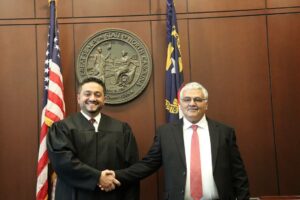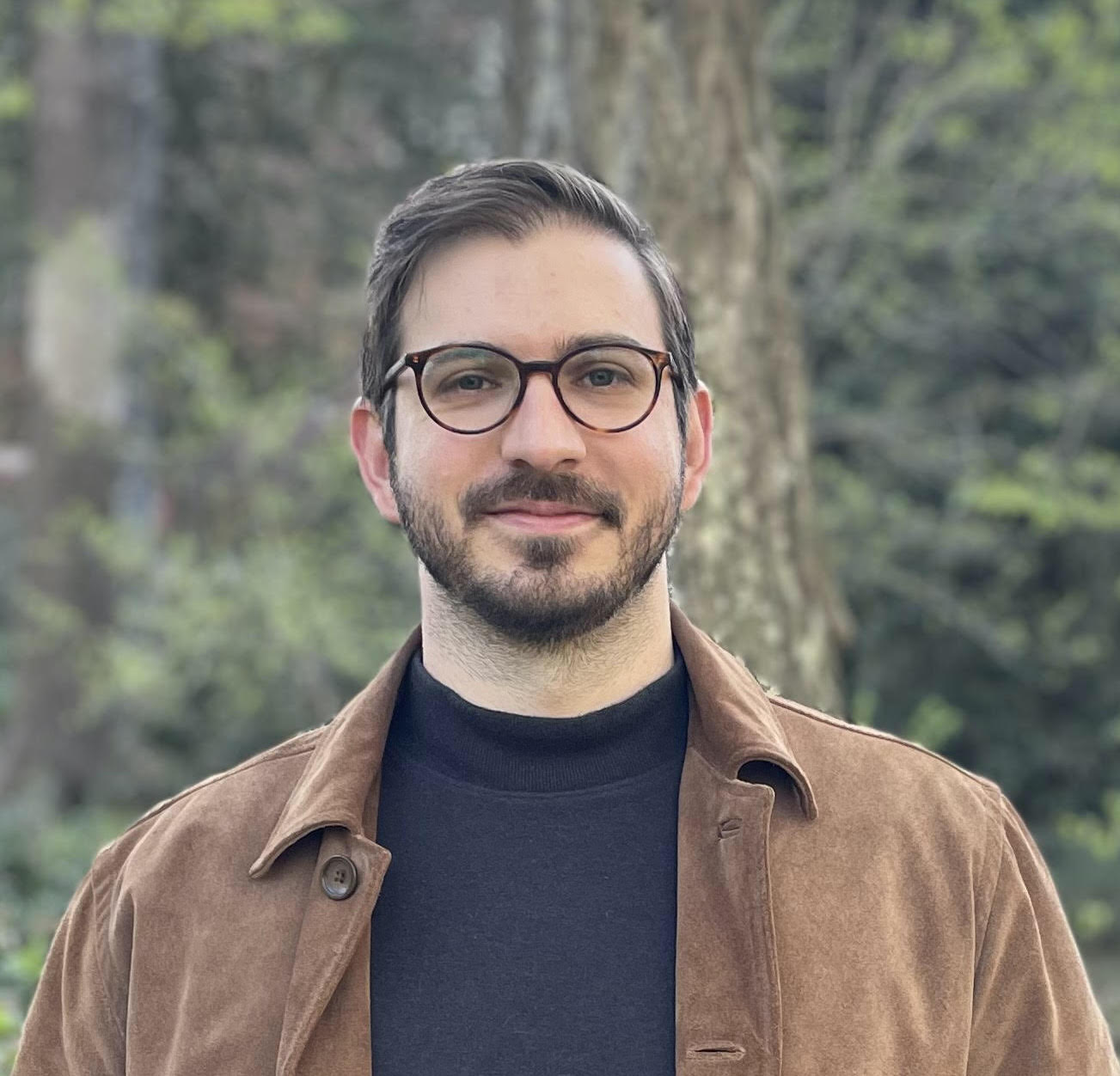 Rashad Hauter can remember his father shaking him awake at 2 a.m. inside their one-bedroom Brooklyn apartment, prodding him from sleep to learn the alphabet as a 3-year-old.
Rashad Hauter can remember his father shaking him awake at 2 a.m. inside their one-bedroom Brooklyn apartment, prodding him from sleep to learn the alphabet as a 3-year-old.
At that early hour, his father, Ahmed, would just be getting home from an 18-hour shift at the corner store. Rather than collapse in bed, he taught English to his 3-year-old boy, who was fresh from Yemen.
“I always hated it,” Hauter jokes now. “I remember my first day at that day care when he dropped me off and I was crying. I remember him telling the instructor the only two things I knew in English were ‘Sit down’ and ‘Get up.”
Thirty years later, Hauter has just accepted Gov. Roy Cooper’s appointment to the Wake County bench, making him the only Yemeni-born judge in the United States.
A proud moment for family
Hauter can’t remember much of Gatham, the remote village in Yemen that housed only 30 families and appears on no maps. But he knew the region, then as now, suffered under a blistering civil war.
To rise to District Court judge, tutored behind his father’s cash register, brings the Hauter family happiness and pride as their native country suffers through the world’s worst humanitarian crisis, with 20 million lacking housing or food.
Appointed by the governor at just 35, Hauter stood shaking his father’s hand under the seal of North Carolina at the end of a long path together.
“That’s the guy who taught me to speak English,” said Hauter this week. “And here I am now giving him corrections.”

District Court Judge Rashad Hauter poses with his father, Ahmed, who brought him to the US from Yemen at age 3. Hauter is the country’s first Yemeni-born judge. COURTESY OF RASHAD HAUTER
On weekends, Hauter would sit on an overturned milk crate behind the counter and study his lessons while his father worked the cash register.
North Carolina and chicken gizzards
Then halfway through the fifth grade, the family packed for Henderson, N.C., where Ahmed Hauter could run his own gas station near U.S. 1 and Interstate 85.
At Hauter‘s Best Bet, his father did a thriving business in chicken gizzards, and his growing son helped unpack them on Friday nights, working the register himself during the rest of the week.
The scenery in Vance County proved just as foreign as New York had in 1989, and locals thought of Hauter as a fancy New Yorker rather than a freshly arrived immigrant.
“I remember us driving down our road where we lived and found it odd that people were waving at us,” he said. “In New York, people usually lifted up their hands, but they were turned the other way.”
First in his family to go to college, he studied biology and Asian studies, taking every available Arabic class – some of them at Duke. Again, his father tutored.
But he got turned toward the law working around his father’s store, where other immigrant employees would struggle to understand a letter from the DMV, or his father would ask him to read him the mail. He knew by then he could navigate complicated circumstances and help others do the same.
Hauter‘s Best Bet proved so successful that Ahmed Hauter now runs more than a dozen businesses.
“He made his riches selling chicken livers and chicken gizzards,” Hauter laughed. “He still wakes up at 4 in the morning. He still works the register. Stocks the fridges.”
There’s just one thing.
“I’ve been telling people you were going to be a doctor for 20 years,” his father would sometimes say. “What am I going to tell them now?”
He can tell them that everyone rises when the boy he taught English enters a courtroom.
And when they address him, they say, “Your honor.”
Posted from RALEIGH Newspaper | February 28, 2021 | News & Observer, The (Raleigh, NC) | Author: Josh Shaffer





